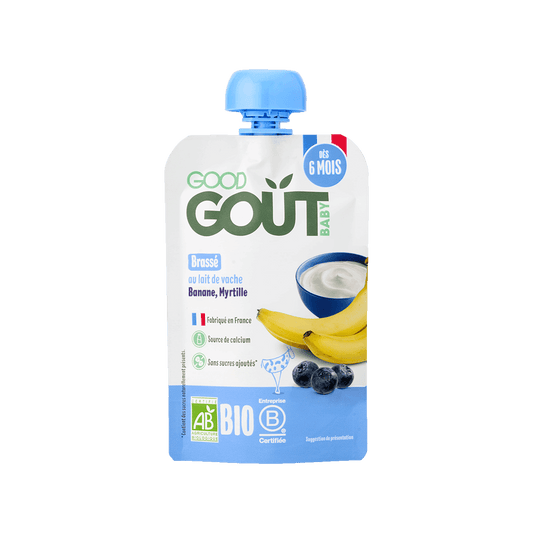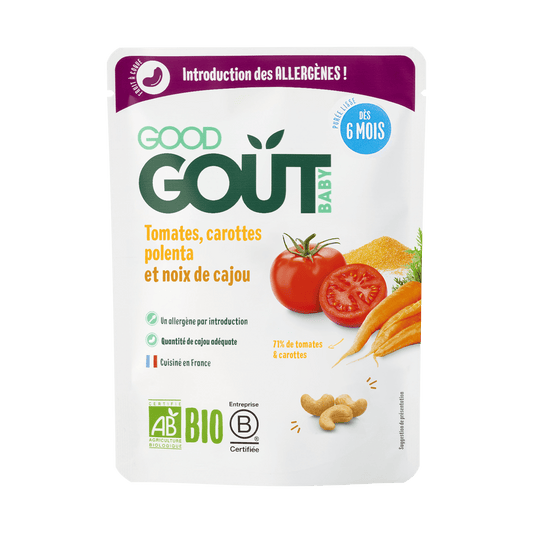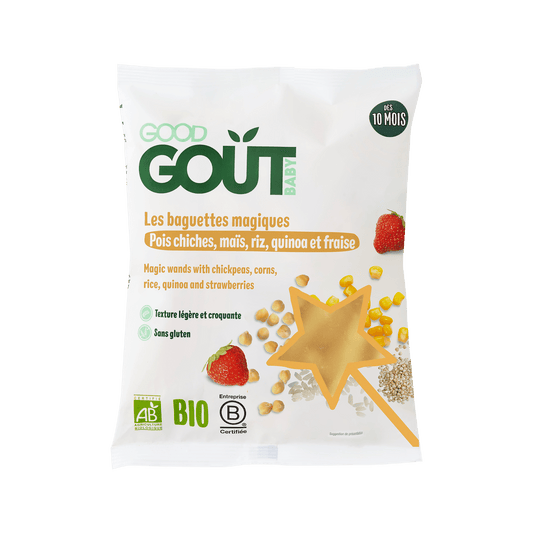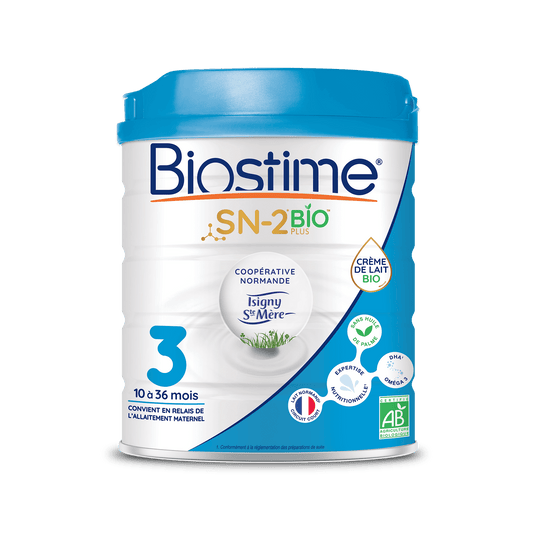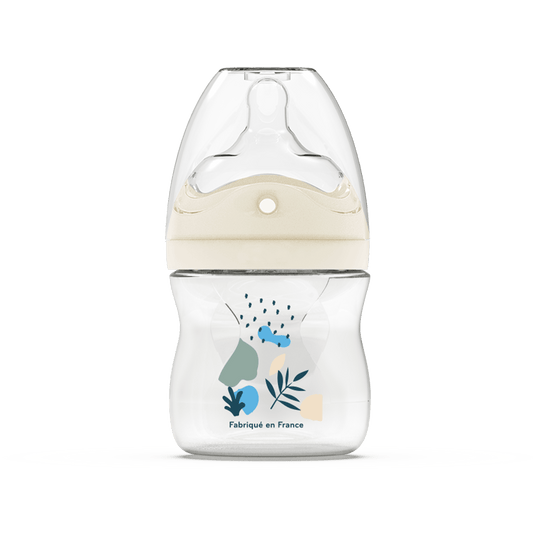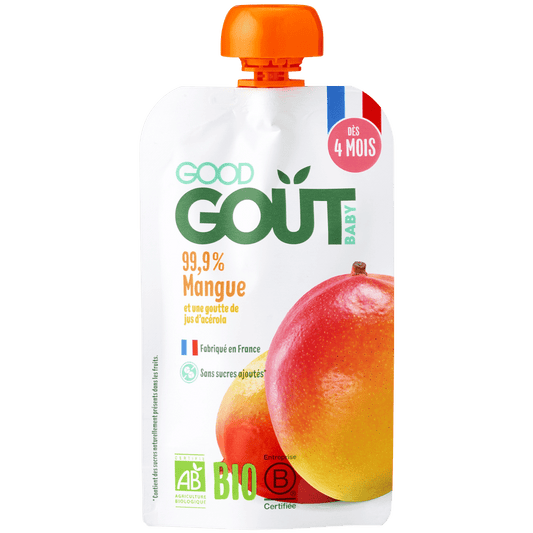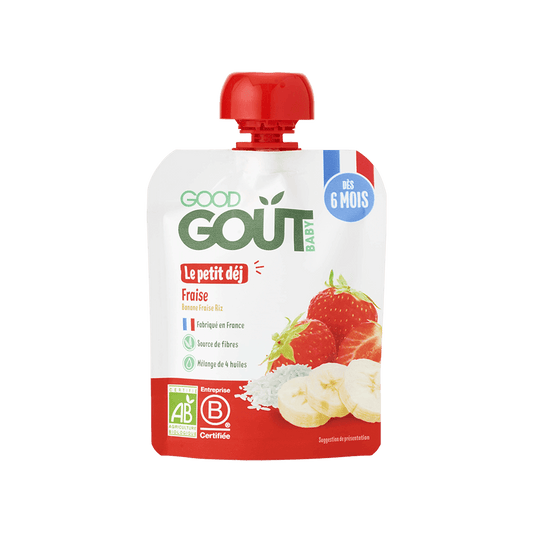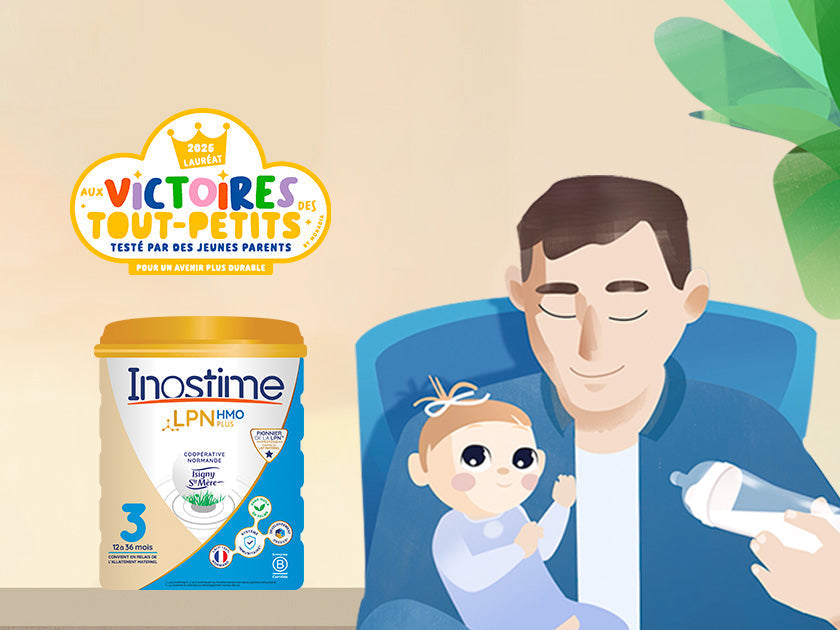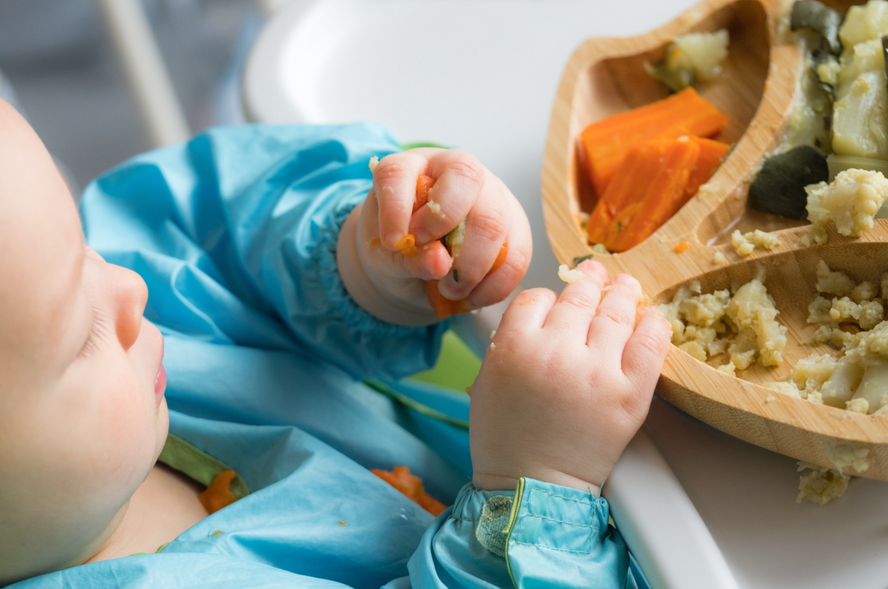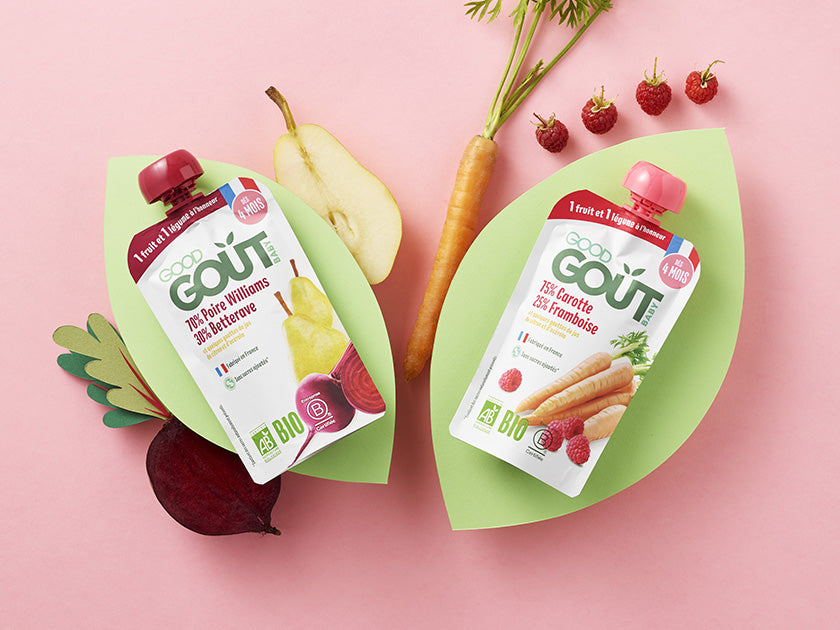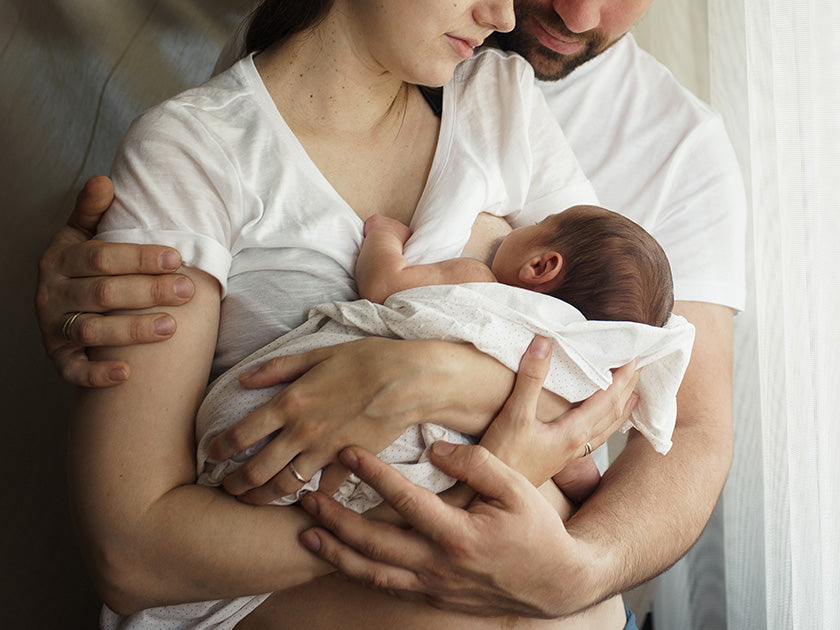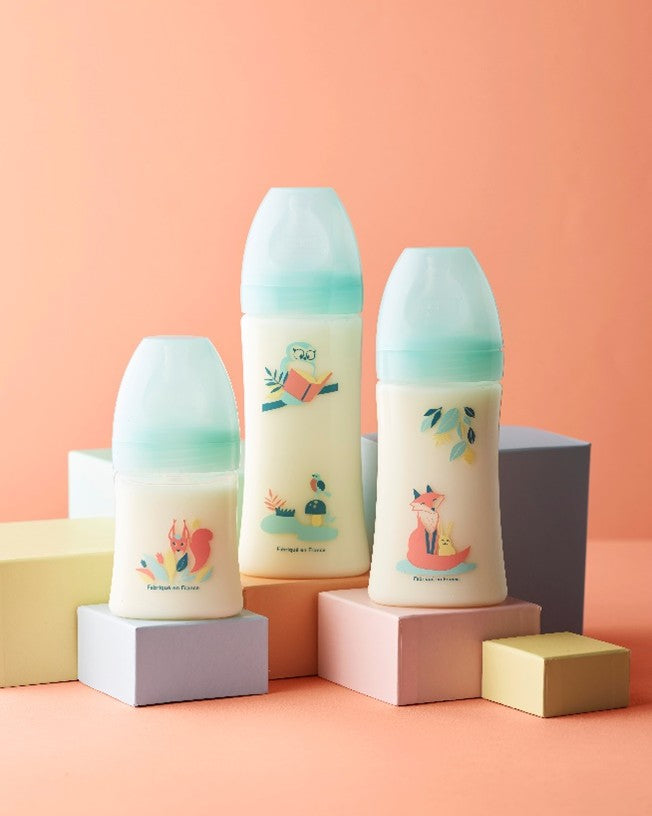“Areuh,” “Aya”... Is your baby babbling and you can't wait to hear their first words? We understand, because this moment is MAGICAL. Language seems very natural to us, but for our little one, it's a real challenge.
To properly support him, there are no secrets between us! Here we explain everything we know about speech development:
This is the #NewBioGeneration
The melodious song of babbling (between 3 and 6 months)
At 3 months, your baby understands that he can communicate with the people around him. You'll see him smile and hear him cry too (we know, it's hard), then make vocalizations. This is normal; these are his first techniques for communicating with you.
You will often see him scrutinizing your face when you speak, because he learns by watching us, love is beautiful!
Pay attention, because little by little, you will recognize some of his emotions according to his facial expressions and intonations.
⇒ Why is it important to talk to him?
Your baby will develop language by communicating with you. So don't hesitate to respond to his coos (yes, yes, even if it's weird!). He won't respond, of course, but he's listening and learning quickly. You can also talk about what's happening around him or describe what he'll be doing during the day.
Time for babbling! (between 7 and 10 months)
This is a KEY moment in learning, as your baby learns the terms that punctuate his daily life: “Shall we change your diaper?”, “Are you hungry, sweetheart?”, “Come on, let’s go for a walk!” He hears them regularly, which allows him to understand the most important words so that he can use them again one day.
Beyond words, he also deciphers voice intonations and tries to reproduce them. When we speak to him, he responds by babbling and pronouncing his first syllables “Tata babaaaa” “Yaya papa”. Some of our little ones are already real chatterboxes!
⇒ And what do I do to help him?
We're sure of it: the more you talk to your baby, the more their language develops! So you can comment on what they do during the day and put words to their accomplishments and games. This allows them to acquire an increasingly rich vocabulary.
Onward to first words (around 12 months)
That's it, your baby is starting to say a few words... And you're often the only one who understands them! This is normal; your closeness allows you to decipher them more quickly. Don't be disappointed, though; your loved ones will learn to decipher them very quickly.
It's at this time that your child experiences a word that you'll hear a lot (too much) in the future: NO! We can reassure you, he has understood the meaning of "yes" very well, but he has much more fun expressing his disagreement.
Next will come words often used in everyday life, such as "more," "hello," "daddy," and "mommy." Most of the time, your baby still communicates through gestures, as this is the easiest way to make himself understood.

The time for “word-phrases” (around 16-19 months)
Over time, your little one will learn to associate words: "Grandma gone?" "Blanket sleep?" It's touching to hear them and often funny!
These "phrase words" allow him to begin discussing and expressing his feelings. Rephrase what he says to show that you understand him and to help him learn sentence structure.
The language explosion! (around 24 months)
Your child understands more and more words (around 300) and is enriching their vocabulary every day. Their curiosity leads them to ask questions like "Who is it?" and "What is it?"
Play is a great way to talk with your child and develop their language skills. Look at picture books together, sing nursery rhymes, and play memory games by naming each picture. Role-playing also allows them to take their place as mom or dad and use their words... So, be careful what comes out of your mouth!
What is a suitable diet?
As you can see, your baby makes incredible efforts every day to learn to speak. To properly support their brain development, nutrition is essential from birth. Breast milk remains the most suitable food for babies until they are 6 months old. But for those who cannot or do not want to breastfeed, at Biostime, we have developed an organic infant milk and, above all, without palm oil, because we decided to enrich our formula with good organic milk cream from Isigny Sainte Mère, naturally rich in palmitic acid, with a structure close to that of breast milk.
And for you, how is it going?
What are your baby's first words? Which one do they repeat the most? Do you have questions about language learning? Let's help each other by sharing our beautiful stories and moments of doubt at contact@biostime.fr or via DM on Instagram @biostimefr.

